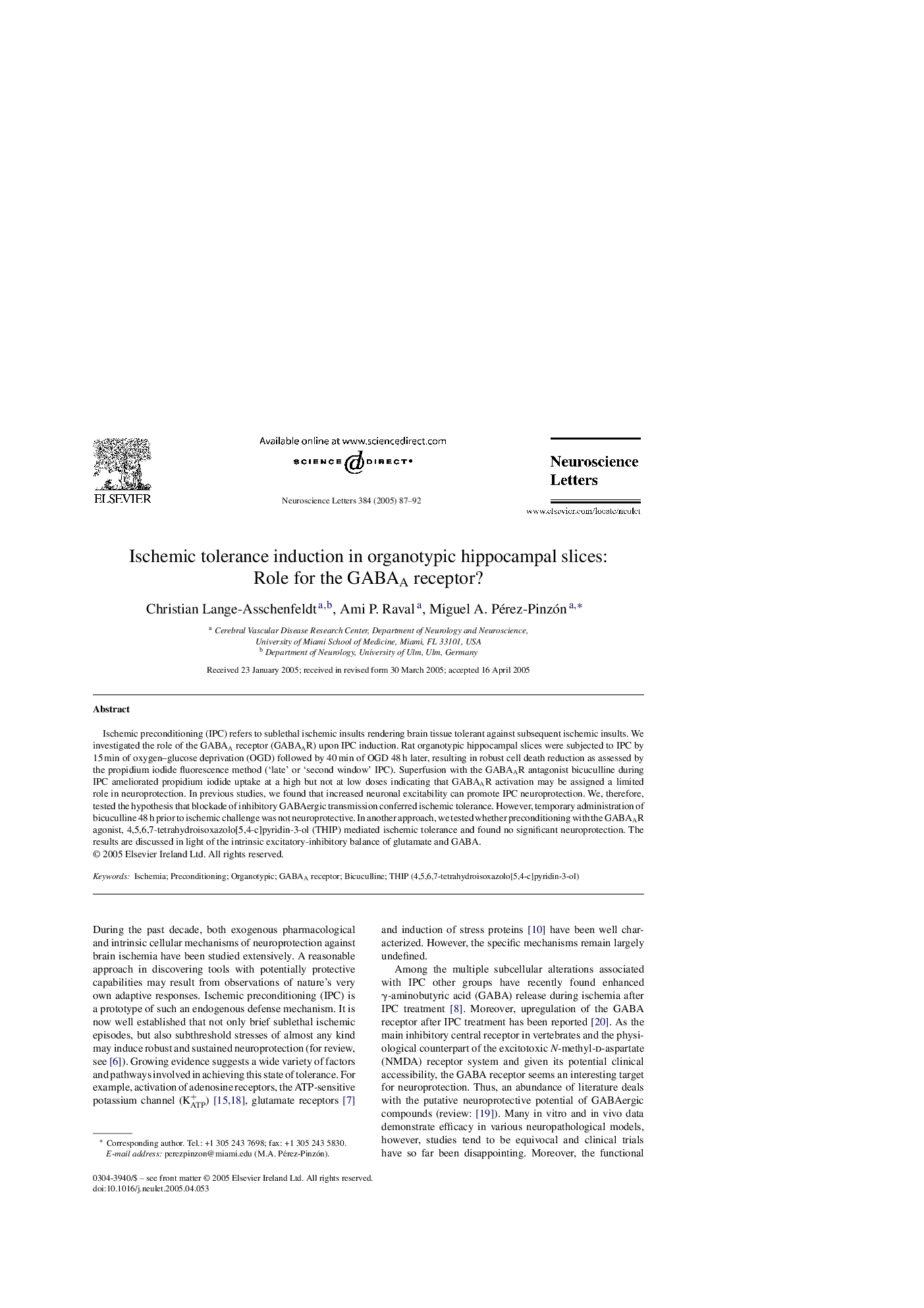| Article ID | Journal | Published Year | Pages | File Type |
|---|---|---|---|---|
| 9429240 | Neuroscience Letters | 2005 | 6 Pages |
Abstract
Ischemic preconditioning (IPC) refers to sublethal ischemic insults rendering brain tissue tolerant against subsequent ischemic insults. We investigated the role of the GABAA receptor (GABAAR) upon IPC induction. Rat organotypic hippocampal slices were subjected to IPC by 15Â min of oxygen-glucose deprivation (OGD) followed by 40Â min of OGD 48Â h later, resulting in robust cell death reduction as assessed by the propidium iodide fluorescence method ('late' or 'second window' IPC). Superfusion with the GABAAR antagonist bicuculline during IPC ameliorated propidium iodide uptake at a high but not at low doses indicating that GABAAR activation may be assigned a limited role in neuroprotection. In previous studies, we found that increased neuronal excitability can promote IPC neuroprotection. We, therefore, tested the hypothesis that blockade of inhibitory GABAergic transmission conferred ischemic tolerance. However, temporary administration of bicuculline 48Â h prior to ischemic challenge was not neuroprotective. In another approach, we tested whether preconditioning with the GABAAR agonist, 4,5,6,7-tetrahydroisoxazolo[5,4-c]pyridin-3-ol (THIP) mediated ischemic tolerance and found no significant neuroprotection. The results are discussed in light of the intrinsic excitatory-inhibitory balance of glutamate and GABA.
Related Topics
Life Sciences
Neuroscience
Neuroscience (General)
Authors
Christian Lange-Asschenfeldt, Ami P. Raval, Miguel A. Pérez-Pinzón,
